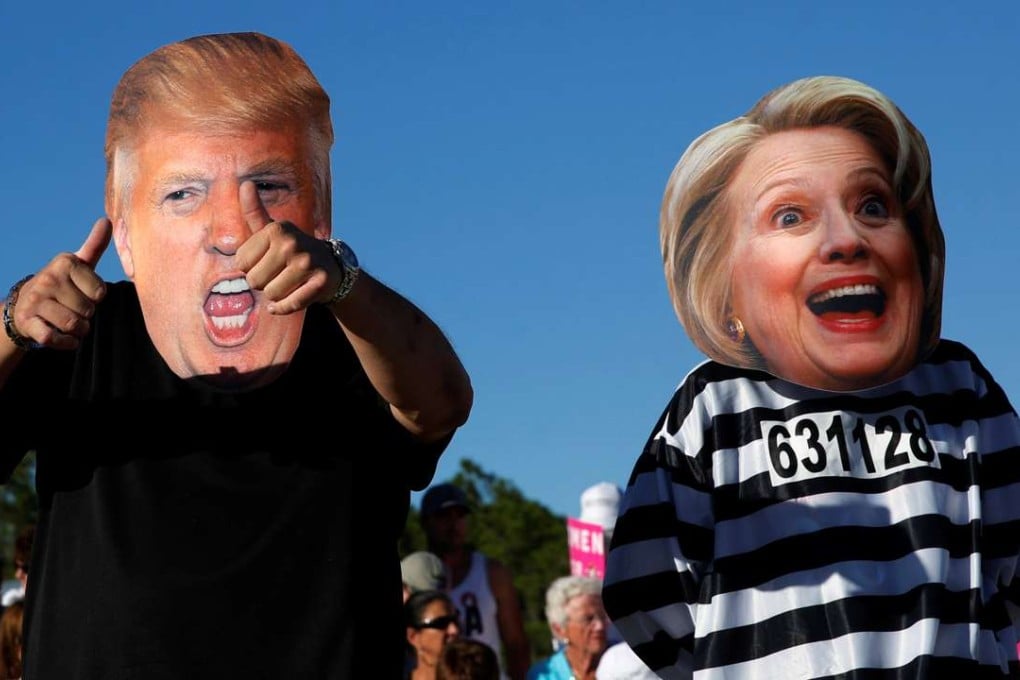Experienced tough talker or avid China basher: is a Clinton or Trump presidency better for Beijing?

In every politics textbook in China, US presidential elections are belittled as money games among the ruling bourgeois to win power and deceive the general public. It doesn’t matter who wins office because a US president will defend moneyed interests at home and extend American imperialism abroad, according to Communist Party orthodoxy.
On the surface, the Chinese government does appear to have taken a lofty and detached view of the US election.
Watch: Trump receives concession call from Clinton
Beijing did not take China-bashing comments seriously during presidential candidate debates. Chinese officials have also rarely shown any public preference for a candidate and simply voice confidence in Sino-US ties regardless of who will ultimately sit in the Oval office at the White House.
China’s government did, however, quietly send a special delegation to keep a closer watcher on the election process partly because the possible impacts on the Chinese economy are too real and tangible to ignore.